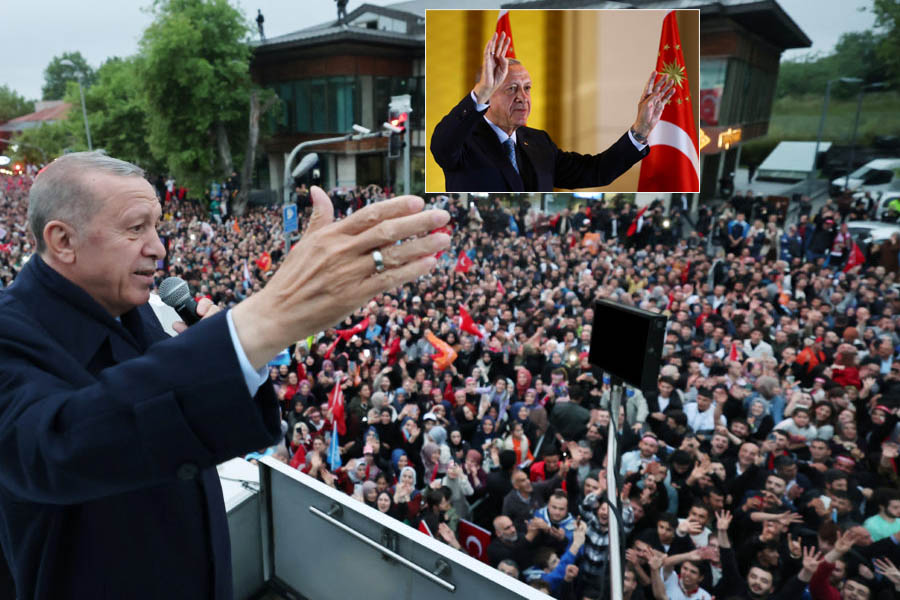
Recep Tayyip Erdogan has emerged triumphant in a closely contested historic election runoff, securing another term as President of Turkey. The incumbent Turkish leader faced a tough challenge from opposition candidate Kemal Kilicdaroglu, but ultimately prevailed with 52.14% of the votes, as announced by the Election Board (YSK). In his victory speech, Erdogan expressed gratitude to the voters, emphasizing that the responsibility of governing the country for the next five years had been entrusted to him. He declared Turkey as the ultimate winner of the election, while opposition leader Kilicdaroglu decried what he considered the "most unfair election in years." Despite the defeat, Kilicdaroglu pledged to continue his struggle for real democracy in the country.
Calling for unity and solidarity, Erdogan vowed to leave behind any disputes and unite the nation based on "national values and dreams." He acknowledged the urgent issue of high inflation and promised to address it, assuring the public that the economy would be strengthened through stability and confidence. Additionally, Erdogan pledged to facilitate the return of 1 million Syrians who sought refuge in Turkey during their country's civil war and prioritize the reconstruction of earthquake-hit cities. Erdogan's latest electoral victory further solidifies his status as Turkey's longest-serving ruler since the republic's foundation by Mustafa Kemal Ataturk a century ago. His re-election is expected to invigorate his pursuit of unconventional economic, domestic, and foreign policies. Erdogan's conservative AKP (Justice and Development Party) has emphasized Islamic values and a populist agenda, empowering Turkey's conservative citizens who had previously felt marginalized under secular leadership. Notably, he has advocated for constitutional recognition of the right to wear the Islamic headscarf and transformed Istanbul's Hagia Sophia into a mosque.
Erdogan's presidency has been marked by challenges to Western partners and NATO allies, including recent delays and blockades of succession within the alliance. Despite this, he received congratulations from NATO allies such as the US, Germany, the UK, and France, as well as Russian President Vladimir Putin. However, Erdogan faces domestic obstacles, particularly concerning his unorthodox economic policies that have contributed to inflation and a cost-of-living crisis. The Turkish leader remains determined to navigate these challenges and maintain his course, despite warnings from analysts. Furthermore, his government has faced criticism for inadequate relief efforts following devastating earthquakes along the Turkish-Syrian border earlier this year. As Erdogan embarks on his new term, the focus will be on his continued leadership, economic stabilization, and addressing pressing domestic issues that await Turkey.